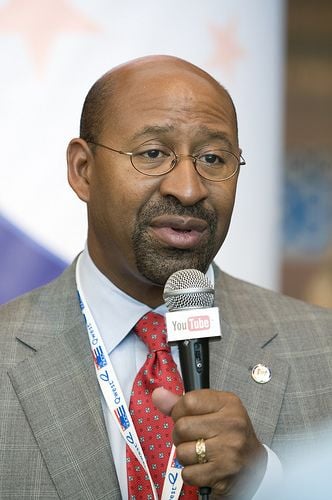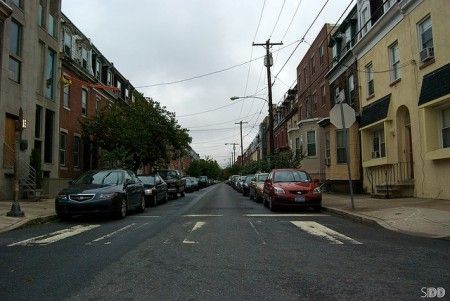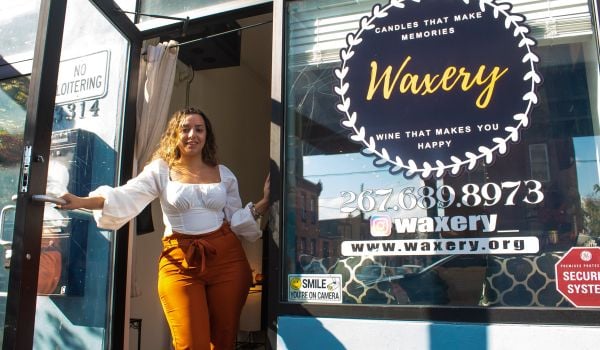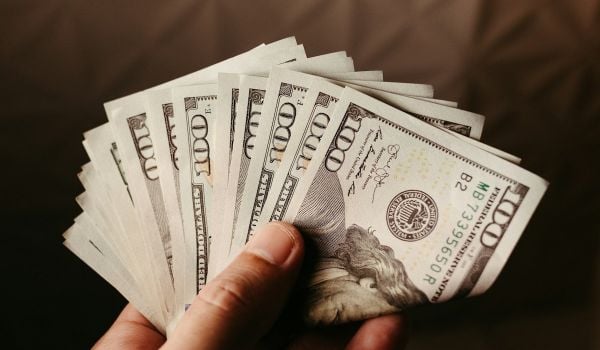Ways & Means is a weekly column by Mark Alan Hughes on economics, politics and sustainability in Philadelphia.
In last week’s column, we discussed three principles to help guide the public debate about the Philadelphia’s ongoing property tax reform. We’ll open this week’ with a review of these ideas:
- First, ownership of property value carries obligations to the city that helps create and sustain that value. Exemptions from these obligations should be about as rare as winning Olympic gold.
- Second, the obligations of owning valuable property can always be met by virtue of the value itself. Our energies should be devoted to creating mechanisms to help owners leverage that value and not devoted to exempting them from those obligations.
- Third and specific to Philadelphia today, maintaining the status quo means that a majority of Philadelphians are paying more than their share. The Inquirer reported one estimate that 262,000 households are relatively over-assessed — paying more than their share — while 188,000 are relatively under-assessed.
Today, let’s move the conversation forward by focusing on the second principle: How to cushion the shock of moving from a wildly dysfunctional system to a functioning system, reflecting the actual value of your home today?
The difficulty inherent to property tax is that, unlike taxes on a paycheck, there is no correlation between how much you make and how much you owe. In a functioning system, this problem is usually manageable because property is taxed at a relatively low rate. A 10 percent appreciation in a $100,000 house would yield a $200 tax increase (probably spread across 12 monthly mortgage payments) under a 2 percent tax rate. That $17 per month seems like a good investment to support an asset that appreciated last year by $10,000.
Mayor Nutter’s Actual Value Initiative will, however, bring large corrections to long-standing inaccuracies in assessments. The reform could mean that some Philadelphians will see their tax bills hiked by 100 percent or more for reasons that have nothing to do with appreciating value. The challenge, therefore, comes down to whether we expect people to meet this obligation or not — and if we do expect it, we need to find ways to help them.

Mayor Nutter Credit: Flickr user studio08denver
There are a number of policy suggestions the City of Brotherly Love could use if, indeed, we are sincere about both collecting needed tax revenue and keeping the people of this city in their homes. Here are a few:
The Homestead Exemption: This exemption aims to help property taxes affordable to low-income homeowners by leaving the first $30,000 of house value untaxed. It’s not very well-targeted, since it applies to everyone, but it is progressive: The exemption reduces the taxes on a $30,000 house by 100 percent (to zero), on a $100,000 house by 30 percent, and on a $600,000 house by only 5 percent. So the Homestead Exemption shifts the property tax burden from lower-value to higher-value properties. I’m not particularly moved by the commitment to homeownership itself, but I do favor any chance for progressivity in any tax. I move that we do all we can to increase participation in the program by making it simpler for people to apply for the exemption by providing an exemption application in the envelope with the new assessments to be mailed in February. Then all a household would have to do is return a signed form to apply, which is much less onerous than having to know about the form and then figure out where to find it.
The second policy solution is directed at those residents of gentrifying neighborhoods who do not have incomes capable of bearing rising property tax bills. This group may include longtime residents or the elderly on fixed incomes. For this group, we can delay the tax payment through a financing mechanism. The city could delay the collection of tax increases from appreciating property values above some reasonable annual limit until the sale of the property. The postponed tax payments would incur an interest rate that would be factored into a lien on the property, just like any other mortgage. The value, however, could not exceed the amount secured by the value of the property. Again, property owners would apply for the postponement each year and the city would recover the postponed amount from the rest of the tax base in setting the tax rate.
Our collective willingness to go through this process is a measure of our willingness to help people meet their obligations while remaining in their homes and neighborhoods.

A street near Graduate Hospital. Credit: Flickr user Sidddd
A third policy solution addresses those who have bought houses in the last five to 10 years under the totally broken system. They may have, say, bought a $200,000 house in Fishtown or Graduate Hospital that was being assessed at $100,000. Under an accurate assessment, their house will be worth the same $200,000, but their tax bill will double. Sure they are only paying their fair share, finally. But this increased tax bill does not arise from the appreciated values in the house the purchased, which is still worth $200,000. Instead the increased tax bill arises solely from fixing a system they may not have known was broken.
And here, the only feasible way out is to ask the longtime victims of that broken system — the working- and middle-class owners of over-assessed properties — to help with a transition that will ultimately ensure that they pay their fair share. That means people who have been paying more than their share would get just half of the relief they are due in the first year, so that people who will be paying their fair share have two years to absorb the extra cost.
This last proposal is that hardest to square with the principles offered at the beginning. It asks those who have borne the heaviest cost of the broken system to help pay for the solution. But without that smoothing, the risk of getting no solution at all is just too great. And under that scenario, those who have borne those costs would continue to bear them in full and forever.
Mark Alan Hughes is a Distinguished Senior Fellow at PennDesign and a Faculty Fellow of the Penn Institute for Urban Research.

Mark Alan Hughes is a Distinguished Senior Fellow at PennDesign and an Investigator at the US Department Of Energy’s Energy Efficient Buildings Hub at the Philadelphia Navy Yard. He is a Faculty Fellow of the Penn Institute for Urban Research, a Senior Fellow of the Wharton School’s Initiative for Global Environmental Leadership, and a Distinguished Scholar in Residence at Penn’s Fox Leadership Program. He has been a senior fellow at the Brookings Institution, the Urban Institute, and a senior adviser at the Ford Foundation. He was the Chief Policy Adviser to Mayor Michael Nutter and the founding Director of Sustainability for the City of Philadelphia, where he led the creation of the Greenworks plan. Hughes holds a B.A. from Swarthmore and a Ph.D. from Penn, joined the Princeton faculty in 1986 at the age of 25, has taught at Penn since 1999, and is widely published in the leading academic journals of several disciplines, including Economic Geography, Urban Economics, Policy Analysis and Management, and the Journal of the American Planning Association, for which he won the National Planning Award in 1992.
















